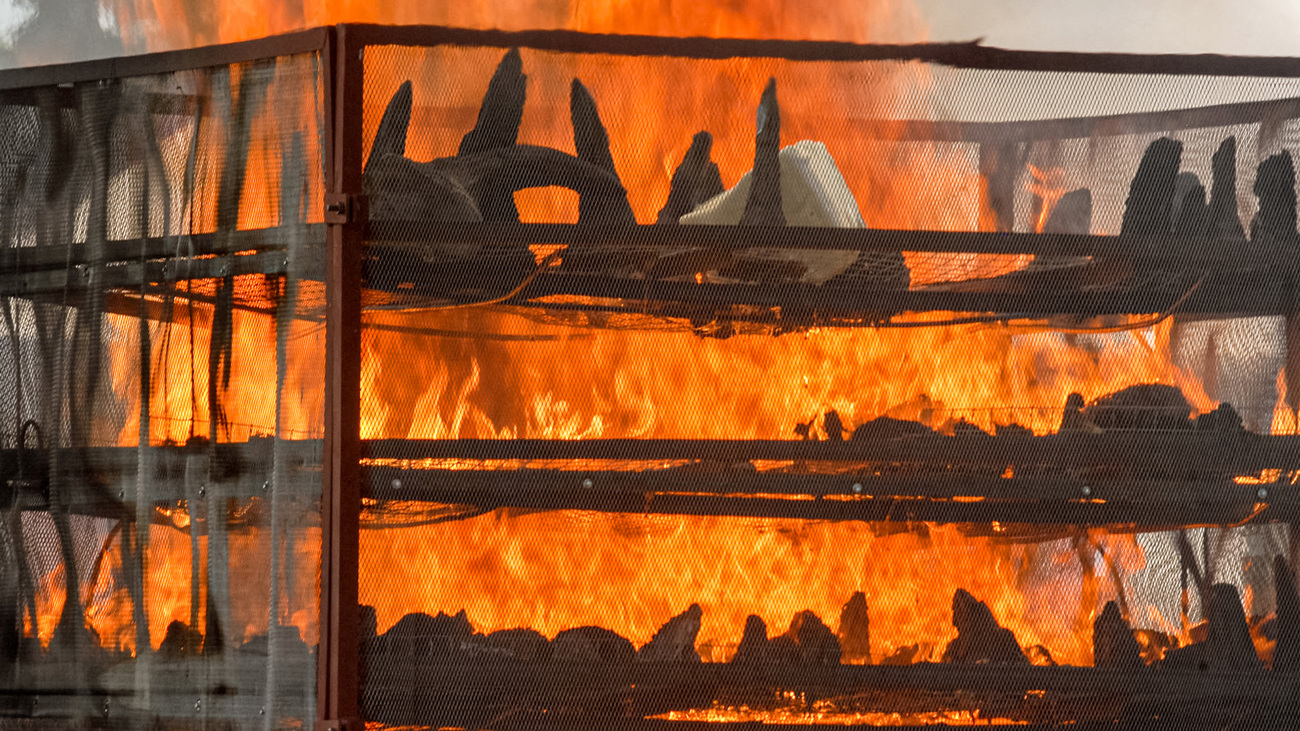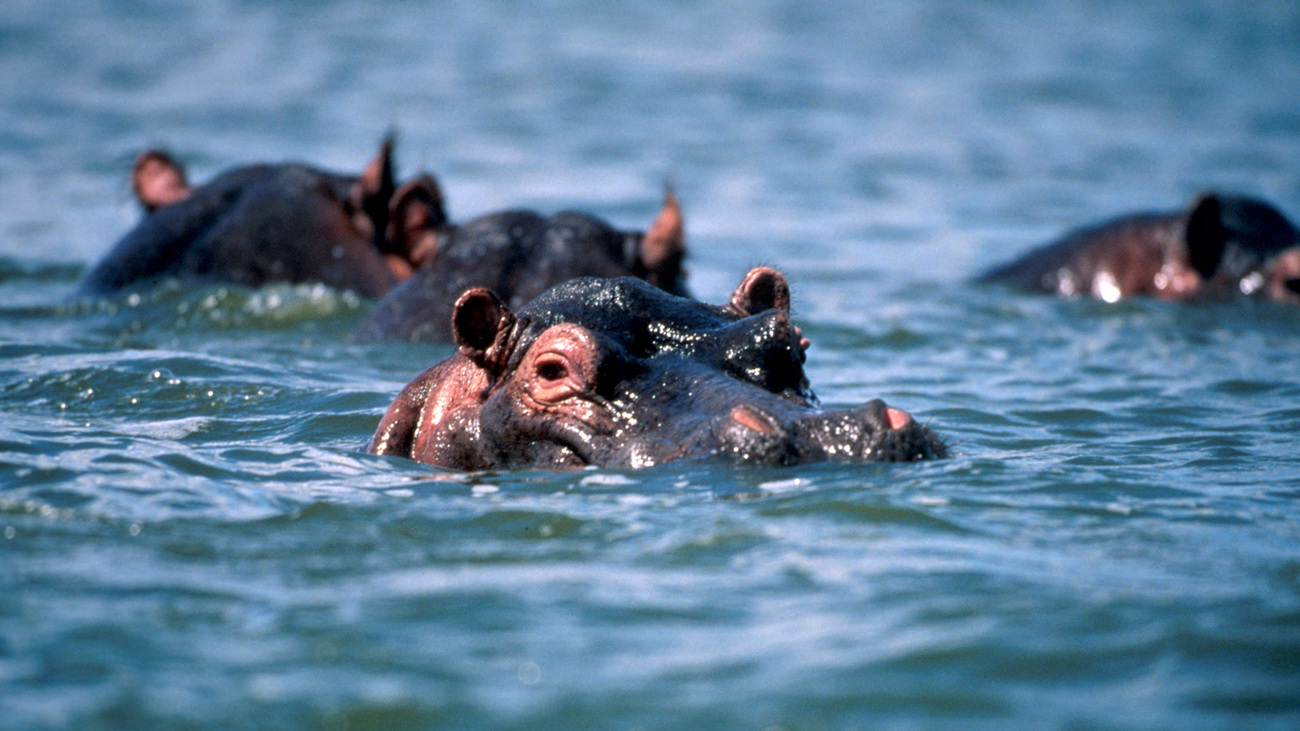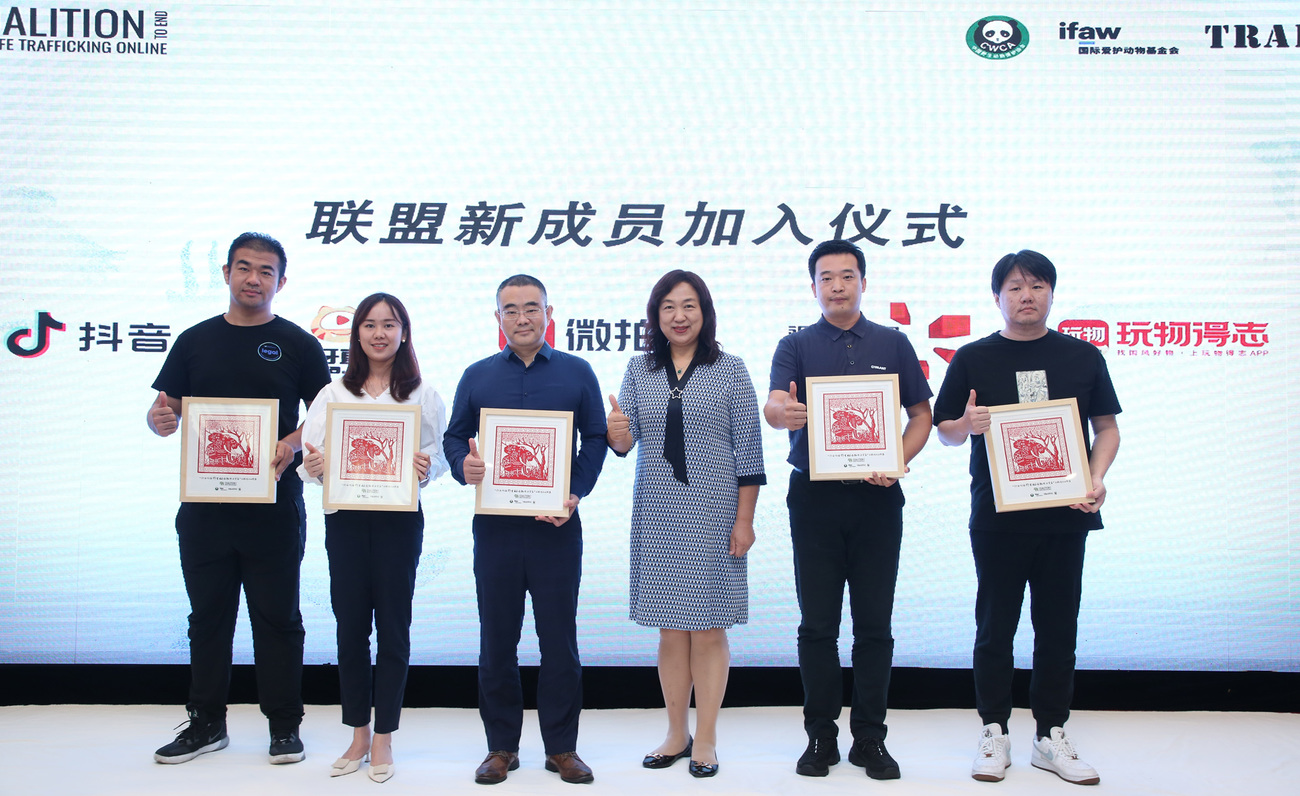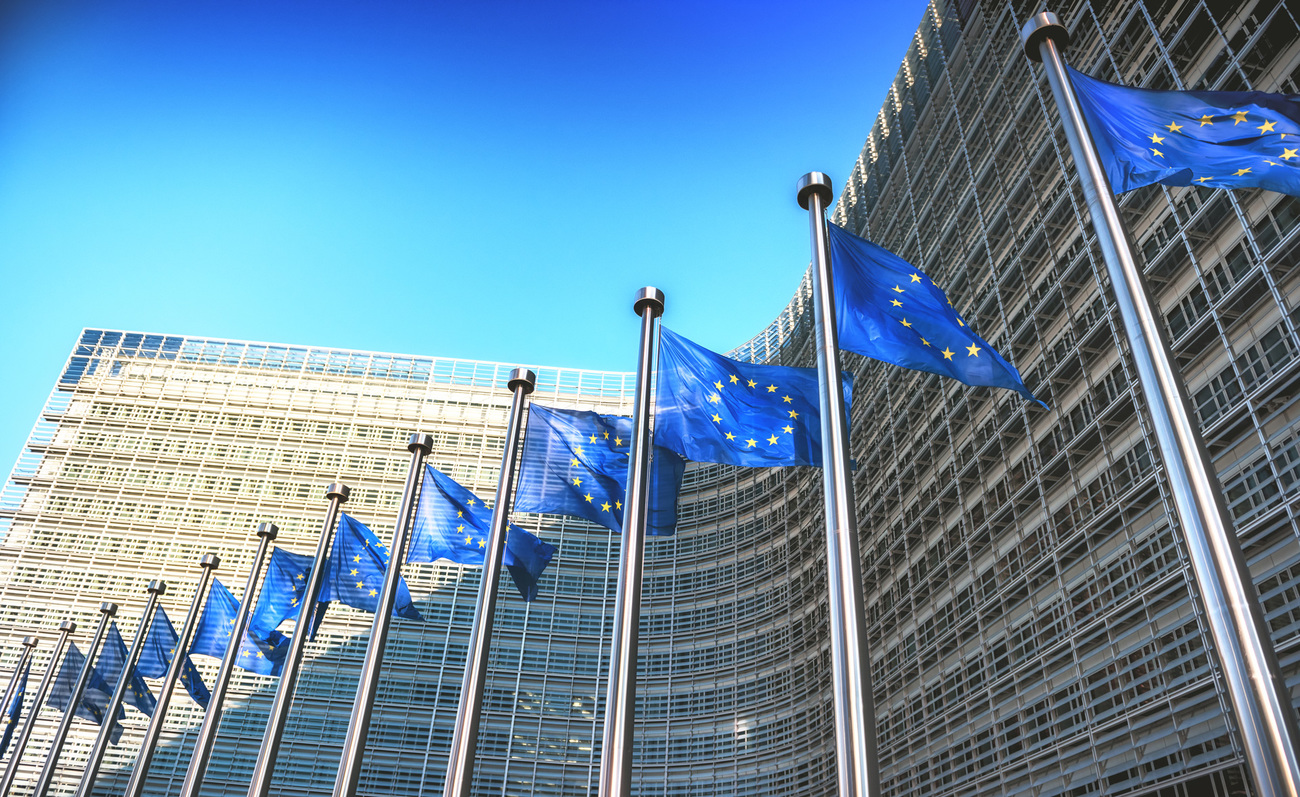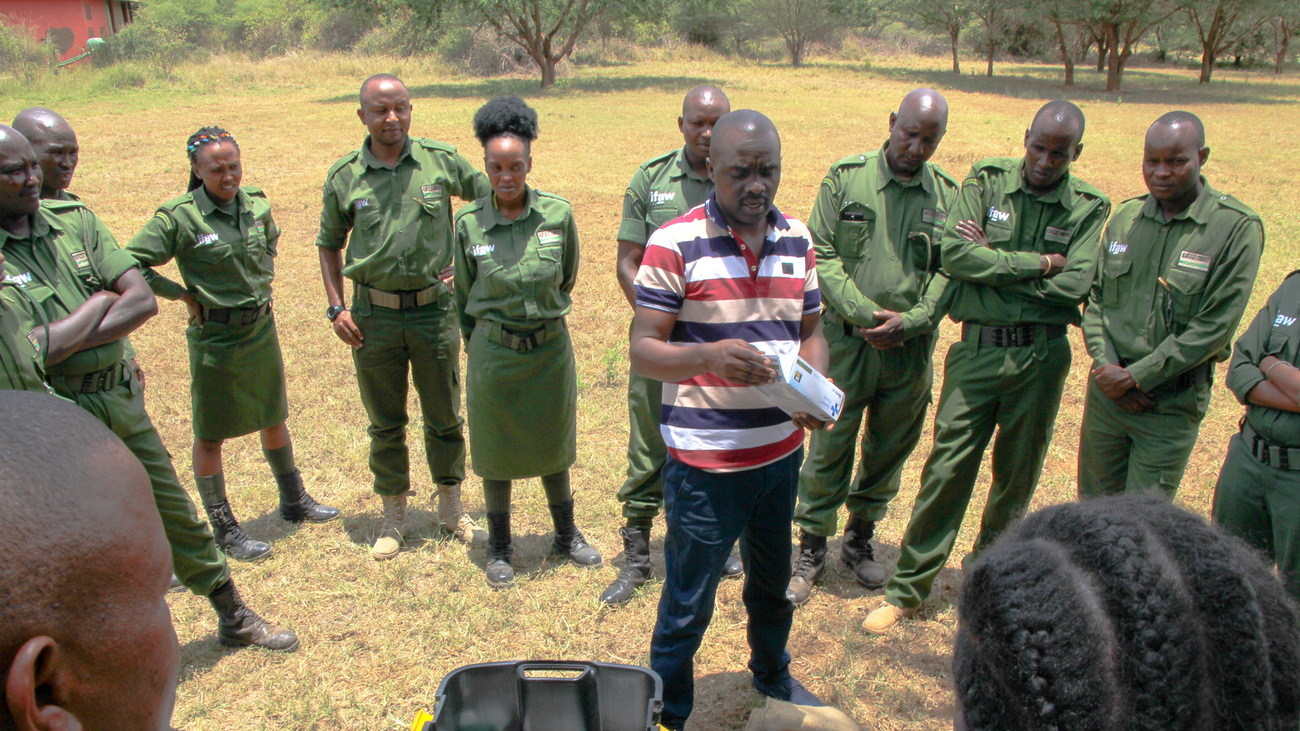wildlife crime
wildlife crime
Wildlife crime is the fifth largest transnational criminal activity, putting at risk the survival of thousands of species of animals and accelerating the ongoing collapse of biodiversity. The illegal trade in live wild animals is causing tremendous suffering and countless animals die while being captured, transported and kept in homes as exotic pets. Even legal wildlife trade, particularly when there is a lack of regulation and enforcement, can facilitate the spread of zoonotic diseases, creating huge threats to humanity.
In our efforts to combat wildlife crime, IFAW works to build the capacity of law enforcement, strengthen policies, reduce consumer demand and disrupt the online trade in wildlife. IFAW’s advocacy work supported significant policy actions that were achieved in FY22 including a US$5.9 million increase in federal support for wildlife crime prevention in the U.S., the implementation of the UK’s 2018 Ivory Act, the launch of new ivory rules in EU Wildlife Trade regulations, the initial development of a draft National Strategy for Wildlife Crime in Guyana and the EU Digital Services Act & Organised Crime Strategy.
combating illegal trade in wild animals
building capacity to protect wildlife in Uganda and the Democratic Republic of the Congo
Poaching and trafficking are threatening wildlife such as hippos, elephants, monkeys and pangolins in the Virunga and Queen Elizabeth National Parks in the Greater Virunga Landscape. With funding from the U.S. Department of State Bureau of International Narcotics and Law Enforcement Affairs (INL), IFAW and the IUCN National Committee of the Netherlands are building the capacity of law enforcement and communities to help stop the illegal trade in protected wildlife between Uganda and Democratic Republic of the Congo (DRC).
In July 2021, IFAW facilitated Conserv Congo and the Natural Resource Conservation Network (NRCN) to work with law enforcement authorities in Butembo in DRC to investigate syndicates involved in wildlife trafficking. This resulted in the arrest of five suspects with five bottles of Okapi antelope oil. The suspects were handed over to the police for prosecution. Another investigation into an ivory criminal syndicate led to the recovery of 100 kilogrammes of ivory and the arrest of four suspects in Bukavu in DRC.
In November 2021, a community informant supported by IFAW in Queen Elizabeth National Park, provided information to park rangers about a route commonly used by poachers. The rangers laid an ambush, arrested five suspects and recovered 700 kilogrammes of hippo meat, three machetes and one gun with seven rounds of ammunition.
Other law enforcement action in FY22 led to the arrest of 11 suspects and the recovery of 87 kilogrammes of hippo meat, four ivory pieces, two pieces of hippo teeth, one buffalo horn and the skins from a serval cat, a leopard and a black and white colobus monkey.
reducing supply in wildlife parts and products
Despite the impact of the ongoing COVID-19 restrictions, IFAW continued collaborating with online technology companies, logistics companies and law enforcement agencies in the fight against wildlife trafficking online.
In September 2021, the Coalition to End Wildlife Trafficking Online released an update highlighting the progress made through engagement with the private sector in an industry-wide approach. Between 2018 and 2021, the Coalition grew to more than 45 members, training close to 2,500 company staff and blocking or removing more than 11 million posts and listings of illegal wildlife for sale. The fourth annual event of the Coalition was held in Beijing, China. IFAW also continued to empower Coalition members through IFAW toolkits with operation manuals enhancing the capacity of online technology and logistics companies to identify wildlife crimes.
A virtual seminar of the 3rd “Operation of Mekong Dragon”, supported by IFAW and the Wildlife Trade Monitoring Network (TRAFFIC) and co-hosted with the Anti-Smuggling Bureau of the General Administration of China Customs and Vietnam Customs, was held in Shanghai, China. Participants included 70 customs law enforcement officers and representatives from 15 countries and 60 frontline anti-smuggling enforcers. The aim was to further increase collaboration and crack down on organised crossborder crime. IFAW also provided suggestions for the provisions of several laws and regulations in 2021, and supported legislation to punish wildlife crimes and improved wildlife trade management in China.
In early 2022, IFAW started work as part of the UNITE project which is dedicated to tacking environmental crime and funded by the Internal Security Fund (ISF) of the European Commission. Our first focus was to monitor the illegal online wildlife trade in Germany and Italy, after which we contributed to a cybercrime open-source intelligence (OSINT) workshop for European law enforcers in Madrid. Further goals are to expand the network of online companies in order to fight illegal wildlife trade online and connect the private sector with law enforcement agencies.
reducing demand by changing behaviors
Through a joint research initiative with the Institute of Psychology at the Chinese Academy of Sciences, IFAW gained insight into Chinese consumer behavior related to wildlife consumption. In FY22, the China team implemented a pilot intervention to reduce demand based on key identified psychological influencing factors that can motivate or discourage wildlife consumption. The campaign videos depicted two social scenarios where consuming tiger bone wine and wearing an elephant ivory bracelet created social awkwardness causing the wildlife consumer to lose face among friends. IFAW marketed the videos on Douyin (China’s Tik Tok) incorporating big data to reach specific target audiences both demographically and geographically. In ten days, the online campaign generated more than 5.2 million media impressions and 60,756 interactions among the target audience.
In total, in FY22, IFAW’s campaigns in China resulted in more than US$21 million in in-kind media donations. In March 2022, for example, IFAW collaborated with Cainiao Logistics to call for an end to the consumption of wildlife products by printing public service announcements (PSAs) on the shipping labels of 100 million parcels. In addition, with 2022 being the Chinese “Year of the Tiger”, IFAW and the China Wildlife Conservation Association (CWCA) promoted PSAs with big cats to demonstrate pride in protecting wildlife and the ecosystems that we all rely on. In another campaign, IFAW had an entire train car in Guangdong Province decorated with protected animals to raise awareness about wildlife conservation.
strongest measures ever to close ivory markets in Europe
After many years of campaigning for a total ban on ivory trade in the European Union (EU), the European Commission finally announced in December 2021 the strongest measures in EU history. In addition, after decades of campaigning, the UK Ivory Act was implemented in June 2022 (following on from legislation passing in 2018). These announcements were an important milestone in the fight against wildlife crime, and great news for elephants.
This nearly complete closure of the European domestic ivory market and suspension of imports and re-exports both in raw and worked ivory will now hinder criminal efforts to launder illegal ivory and reduce incentives for poaching. Only a few exceptions for antiques and some musical instruments remain. While the new guidance in the EU lacks the teeth of dedicated legislation, EU Member States generally adhere to guidance, as seen with EU rhino horn provisions. Ultimately, it shows that Europe is finally taking responsibility for the death of thousands of elephants caused by the ivory trade.
making wildlife trafficking more difficult
In Europe, IFAW’s dedicated advocacy team lobbied intensely to influence the negotiations on the new EU Digital Services Act (DSA) before adoption by the European Parliament in July 2022. The DSA is an innovative legislation that defines responsibilities and accountability for providers of intermediary services, and in particular online platforms, such as social media and marketplaces. IFAW set out to ensure that ‘what is illegal offline is illegal online’, including wildlife trafficking.
Online wildlife trafficking is driven by consumer demand for wildlife products like elephant ivory, rhino horn and big cat skins, as well as an increasing trend in live pets, fueled by the promotion of exotic pet ownership and interactions on social media. As COVID-19 restrictions limited movement, traders turned to the internet to sell wildlife. The DSA could not be timelier to tackle the growing illegal online trade. It introduces new transparency requirements for companies that will make the detection of illegal wildlife products and law enforcement easier, provisions for trusted flaggers to monitor potential illegal activity and dissuasive penalties. Perhaps most critically, due to IFAW advocacy efforts, the illegal trade of animals has been included in the definition of illegal online content.
advocating for stronger EU action against wildlife trafficking
The landmark EU Action Plan against Wildlife Trafficking (WTAP), championed by IFAW, is currently up for renewal. Adopted in 2016 by the European Commission, the WTAP created stronger political momentum to fight wildlife crime, increased cooperation among enforcers and urged a greater EU role and profile in international negotiations. It created the basis for targeted funding and resulted in IFAW’s participation in two EU-funded projects to combat wildlife cybercrime.
During its implementation the EU promoted efforts to reduce consumer demand, increased species protection at the Convention on International Trade in Endangered Species of Wild Fauna and Flora (CITES) Conference of the Parties and enhanced cooperation with third countries. Following its expiration, in 2021 the European Commission held a stakeholder workshop and public consultation on the renewal of the WTAP.
IFAW actively participated by providing detailed recommendations and collaborating with other NGOs to drive robust revisions. We advocated to strengthen aspects on cybercrime, monitoring and enforcement, international partnerships and funding. Early indications signal most of our recommendations will be included in the renewed WTAP to be adopted by the end of 2022.
improving the handling of live animals seized in trade
In November 2021, IFAW was awarded a generous grant by the U.S. Department of State’s Bureau of International Narcotics and Law Enforcement Affairs (INL) to help ensure live animals confiscated from illegal wildlife trade are handled properly while in custody and to strengthen judicial processes leading to prosecutions. While efforts to tackle trafficking have historically been focused on wildlife products, limited attention has been paid to the trafficking of live animals.
Wild animals are being illegally captured, transported, and sold live at a shocking rate and traffickers primarily target threatened or protected species. This illegal trade undermines wildlife conservation efforts, increases zoonotic disease risks and has a severe impact on animal welfare.
The Confiscated Animals – Rescue & Enforcement project, led by IFAW and implemented together with Jakarta Animal Aid Network, the Jane Goodall Institute and Legal Atlas is developing technical resources on the safe handling of live animals during seizure or confiscation. It also provides training to frontline enforcement officers on best practices for animal welfare, evidence collection and biosafety.
In the U.S., IFAW has joined with partners, including the U.S. Fish & Wildlife Service, the Association of Zoos & Aquariums and the California Department of Fish & Wildlife, to establish a confiscations network for the southern California region, which is a hub for live animal trafficking. This network will help to rapidly place seized animals into appropriate facilities, ensuring the well-being of the animal, and enabling law enforcement officers to focus on investigations. The southern California confiscations network will serve as a pilot programme for regional networks around the U.S. and inform IFAW’s work on housing and care of confiscated wildlife globally.
training rangers as first responders in wildlife crime investigations
One way to combat wildlife trafficking is to equip community rangers with the skills to manage wildlife crime scenes in the time before law enforcement officers have time to arrive. In March 2022, with funding from the U.S. Department of State Bureau of International Narcotics and Law Enforcement Affairs (INL), IFAW facilitated a two-day intensive training programme in Amboseli, Kenya. The training helped 30 community wildlife rangers from the Olgulului Community Wildlife Rangers (OCWR) develop new skills as first responders in wildlife crime scene investigation. In total in FY22, 44 community rangers from the Amboseli and Loita landscapes received training in crime scene management and geographical information systems (GIS), with the ultimate goal of mitigating wildlife trafficking and increasing conviction rates for wildlife poachers and traffickers.
IFAW thanks all our donors, supporters and partners around the world who enabled our impact in the area of wildlife crime in FY22, with special acknowledgment of:
U.S. State Department Bureau of International Narcotics and Law Enforcement
U.S. Fish & Wildlife Service
IUCN National Committee of the Netherlands
Earth League International
Jane Goodall Institute
Uganda Wildlife Authority
African Wildlife Foundation
Kenya Wildlife Service
Zimbabwe Parks and Wildlife Management Authority
Department of National Parks and Wildlife (Malawi and Zambia)
Stay in the know. Be ready to act.
You’ll receive news, updates on activities and on future giving opportunities. You can unsubscribe at any time.